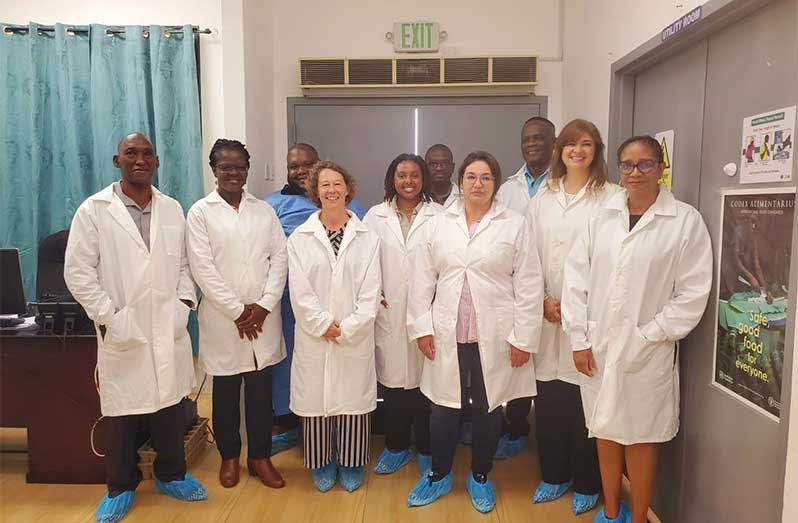THE Ministry of Agriculture continues to made steady progress in developing Guyana’s agricultural sector with better infrastructure and innovative and targeted measures.
A new modular pig slaughtering and processing facility is set to be constructed at Garden of Eden, East Bank Demerara, as part of the ministry’s efforts to bolster the pork industry while reinforcing Guyana’s defences against the deadly African Swine Fever (ASF).
The announcement was made during the launch of the USDA-FAS and IICA-supported Regional African Swine Fever Surveillance Pilot hosted at Cara Lodge, on Monday.
The facility aims to be a significant addition to the country’s already blossoming agricultural sector, designed to support hygienic slaughtering and improve pork-processing standards for local farmers.
The announcement was made by Dr Dwight Walrond, Chief Executive Officer of the Guyana Livestock Development Authority (GLDA), speaking on behalf of Minister of Agriculture Zulfikar Mustapha.
As he said, the facility represents a critical investment aimed at strengthening the country’s agricultural resilience and self-sufficiency.

“The modular pig-slaughtering and processing facility at Garden of Eden will be completed, providing hygienic slaughter services to farmers,” Dr. Walrond related.
The facility forms part of a larger strategic plan to modernise Guyana’s agricultural sector. Currently, Guyana has approximately 88,000 sow units.
With over GY$1.9 billion invested across nine of the 10 administrative regions over the past 16 months, the government aims to upscale the national pig population to 500,000 sow units within the next three years.
The ASF Surveillance Pilot, launched alongside these infrastructural developments, is intended to proactively protect the sector from the virus, which, while not harmful to humans; can devastate pig populations and local economies.
“The launch of this African Swine Fever (ASF) Surveillance Pilot is a critical step in our ongoing efforts to safeguard our livestock industry and protect the livelihoods of our farmers,” Dr Walrond said.
He noted that while Guyana remains ASF-free, the threat remains real, given the virus’ presence in Haiti and the Dominican Republic.
The surveillance plan, developed in partnership with the United States Department of Agriculture (USDA) and the Inter-American Institute for Cooperation on Agriculture (IICA), includes a comprehensive strategy focused on five main areas, namely: enhanced biosecurity, nationwide surveillance, stakeholder engagement, outbreak preparedness and financial support for affected farmers.
Some of the immediate actions include strengthening border checkpoints, refreshing staff training, increasing diagnostic testing capacity and hosting educational workshops for farmers and veterinarians.
This coordinated approach aims not only to prevent the introduction of ASF but also to model effective disease control for the Caribbean. It aligns with the country’s commitment to the 2030 Agenda for Sustainable Development and affirms Guyana’s role as a leader in resilient agricultural practices.
“I am confident of Guyana’s capabilities to implement the necessary initiatives, like this one, ensuring a resilient agricultural sector that continues to nourish and sustain our nation for generations to come.” he added.
United States Ambassador to Guyana Nicole D. Theriot, while acknowledging Guyana’s effort to prevent AFS, has affirmed the US’ commitment to support the growth of the swine industry.
She said: “The US remains committed to working alongside Guyana and regional partners to mitigate transboundary animal diseases. This pilot is a cornerstone in ensuring the resilience of agriculture in the Americas.”
She also highlighted the importance of the programme since the investment in prevention of ASF is critical for survival of the swine industry.



.jpg)









